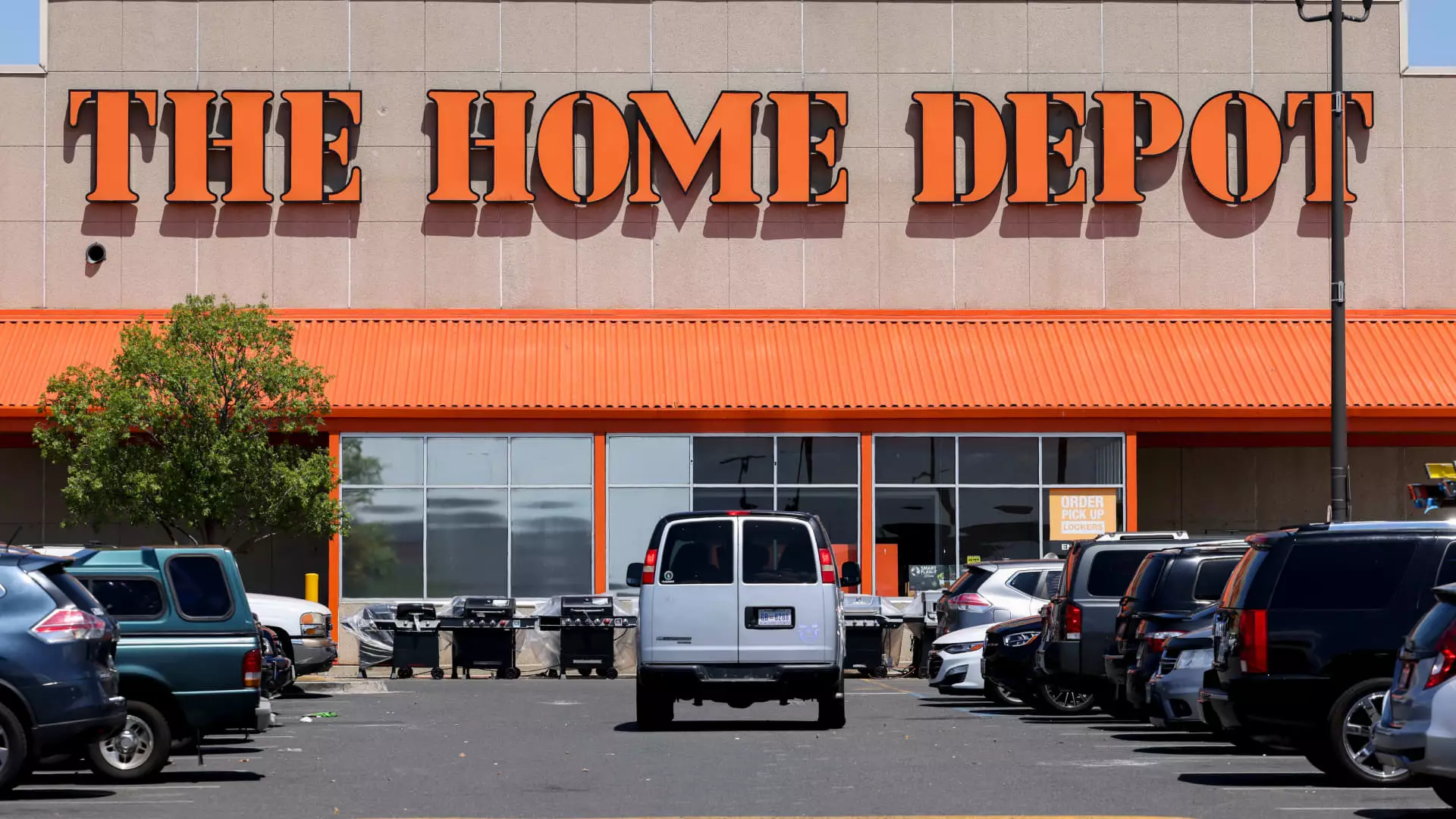The retail landscape often serves as a bellwether for broader economic trends, and current sentiments surrounding two retail heavyweight shares, Home Depot and Best Buy, illustrate the complex interplay of market forces at play. While analysts exhibit newfound enthusiasm for Home Depot’s stock prospects, unease includes the outlook for Best Buy, indicating divergent trajectories for two iconic brands amid a shifting economic backdrop.
Analysts from the Telsey Advisory Group recently elevated Home Depot’s stock rating to a “buy-equivalent outperform,” reinforcing their confidence in the company’s ability to navigate the complexities of the current economic environment. The firm has also adjusted its price target for Home Depot’s stock from $360 to $455, suggesting a nearly 14% upside potential from previous closing prices. This bullish outlook comes just ahead of the anticipated Q3 earnings report, which is expected to provide insights into the company’s current performance metrics.
Despite predictions of “continued softness” in quarterly sales, the analysis underscores a promising picture for Home Depot in the longer term. The forecast highlights various catalysts such as lower mortgage rates, ongoing hurricane recovery efforts, and a comparative advantage resulting from an easing demand cycle as we move past the pandemic-driven shopping spree. The analysts point to Home Depot’s robust business fundamentals, particularly in the professional services segment which is increasingly vital for larger renovation projects.
Economic Environment as a Catalyst
Analysts credit an overall resilient economic environment and moderating inflation as key components boosting Home Depot’s prospects. The Federal Reserve’s recent monetary policy, particularly the interest rate cuts, positions Home Depot to benefit significantly as lower mortgage rates may invigorate a stalled housing market. New and seasoned homeowners depend heavily on construction and renovation supplies from Home Depot, making its stock a potential beneficiary of this broader economic recovery.
Moreover, after encountering a downturn following disappointing earnings in August, Home Depot’s shares have rebounded steeply, rising over 2.5% recently as confidence returned with a resolution of the presidential election. The point of view here is that Home Depot stands to outperform the S&P 500 by 2025, reflecting a confidence in the home improvement sector’s resilience and growth.
Contrasting with the positivity surrounding Home Depot is the cautious tone directed toward Best Buy. Citi analysts have revised Best Buy’s price target downward from $115 to $109 while maintaining a “buy” rating. The concerns primarily stem from potential new tariffs initiated by President-elect Donald Trump, which could pose a significant threat given Best Buy’s heavy reliance on imports from China, particularly electronics.
Despite this turbulence, Citi recognizes an ongoing technology replacement cycle wherein consumers are increasingly seeking to upgrade their devices, a potential boon for Best Buy. This duality illustrates a nuanced approach: while challenges loom, substantial opportunities remain tethered to trends in technology upgrade and consumer behavior.
Jim Cramer’s perspectives further amplify the strategic underpinnings of both stocks. He asserts that Home Depot is poised to gain from potential Fed easing, prodding investors towards patience in the face of immediate earnings reports. He advises against knee-jerk reactions, positing that while some earnings may fall short, the outlook moving forward holds more weight.
Conversely, Best Buy’s strategic positioning in the tech replacement cycle offers glimmers of hope amid external pressures. Cramer and Citi believe that should interest rates continue to dip, demand for high-ticket items—from appliances to electronics—could rebound, creating an advantageous scenario for the retailer.
By maintaining a long-term investment horizon, investors may capitalize on the distinct narratives shaping Home Depot and Best Buy. As both companies prepare to reveal third-quarter results—Home Depot on the heels of optimistic acquisitions and Best Buy under scrutiny for its trade vulnerabilities—their performances will likely inform broader market sentiments in the retail sector.
Navigating the current economic landscape requires investment acumen that recognizes individual company strengths and vulnerabilities. Home Depot appears set to ascend due to favorable conditions, while Best Buy’s journey remains encumbered by external pressures. Investors should remain vigilant, keeping a watchful eye on the developing landscapes of both retail entities to make informed decisions as the year progresses.

